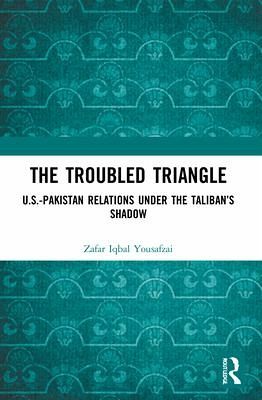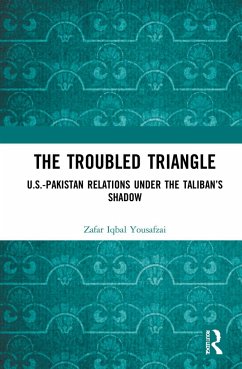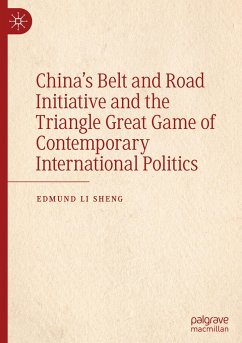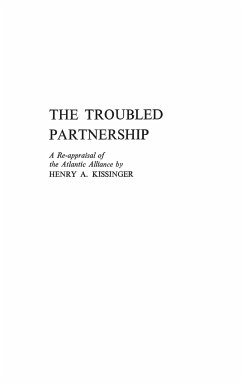
The Troubled Triangle
US-Pakistan Relations under the Taliban's Shadow

PAYBACK Punkte
27 °P sammeln!
This book is a comprehensive analysis of the Taliban, and how it has affected post-9/11 U.S.-Pakistan relations. It analyzes the genesis of the Taliban, the rationale behind their emergence and how they consolidated their rule in Afghanistan from 1996 to 2001. It examines the U.S. policies towards the Taliban in the post 9/11 era and Pakistan's role as an ally in their efforts towards dismantling Taliban rule in Afghanistan-from Obama's 'fight and talk' policy to the Doha peace agreement in 2020. It also discusses the outcomes of the Global War on Terror (GWoT), as well as the Taliban's respon...
This book is a comprehensive analysis of the Taliban, and how it has affected post-9/11 U.S.-Pakistan relations. It analyzes the genesis of the Taliban, the rationale behind their emergence and how they consolidated their rule in Afghanistan from 1996 to 2001. It examines the U.S. policies towards the Taliban in the post 9/11 era and Pakistan's role as an ally in their efforts towards dismantling Taliban rule in Afghanistan-from Obama's 'fight and talk' policy to the Doha peace agreement in 2020. It also discusses the outcomes of the Global War on Terror (GWoT), as well as the Taliban's response to the U.S.-led ISAF and NATO forces in Afghanistan. The volume brings into focus Pakistan's policies vis-à-vis the Taliban following the start of GWoT and how it pushed the U.S.-Pakistan relations to its lowest ebb; and then its role in bringing the Taliban to the negotiating table which resulted in the U.S.-Taliban deal in Doha in February 2020. The author introduces a 'new balance of threat' theory and expands on its applicability through the Taliban case study. The book will be of great interest to scholars and researchers of U.S. foreign policy, international relations, peace and conflict studies, strategic studies, history, diplomatic studies and South Asian politics.














